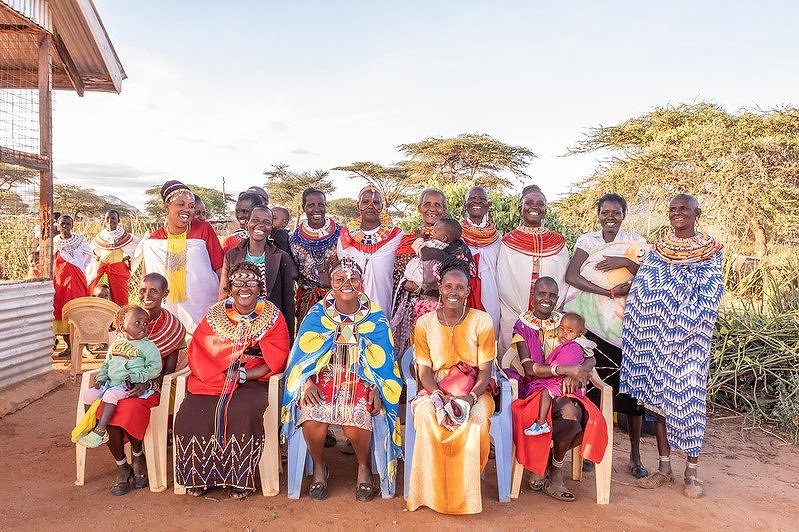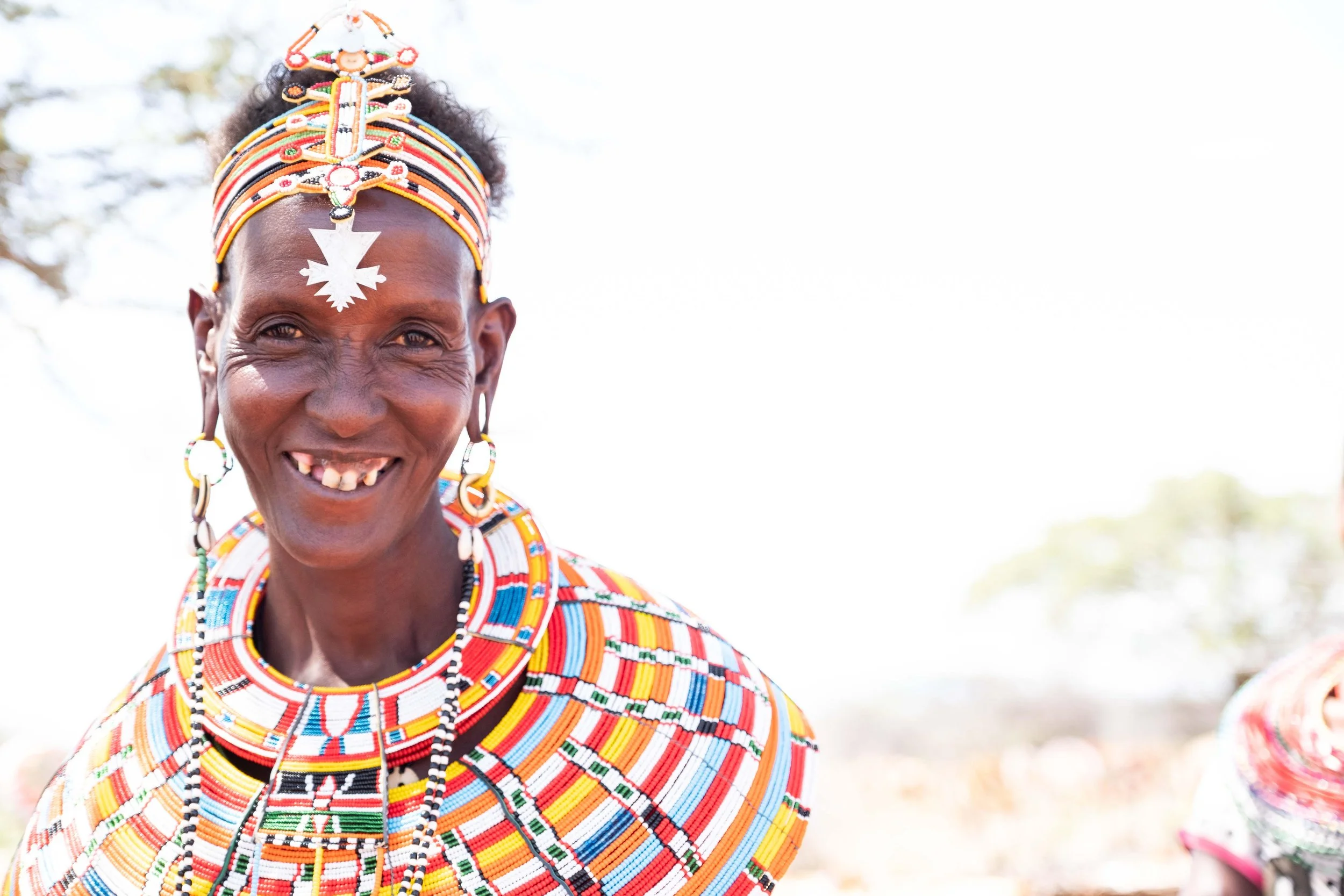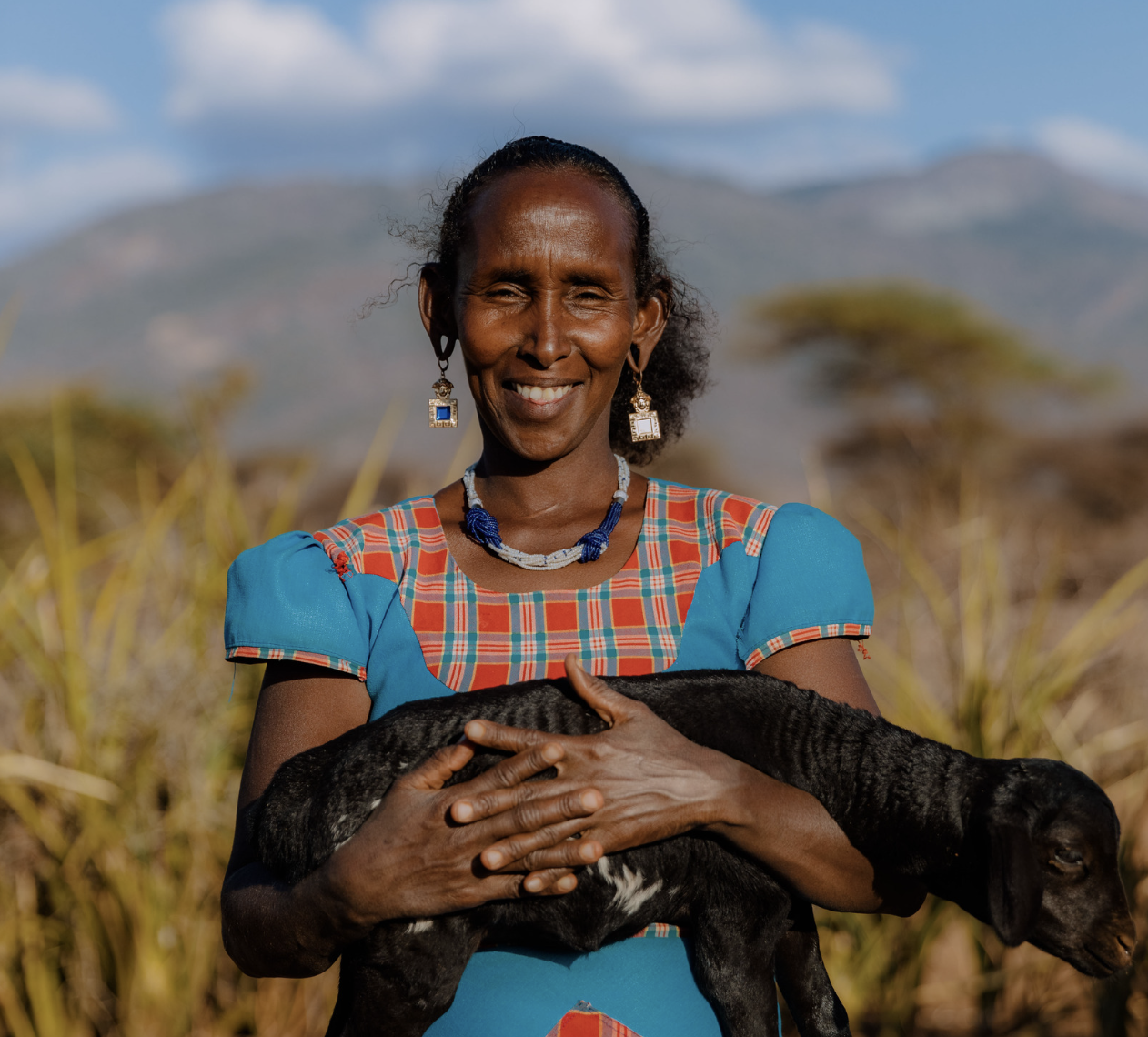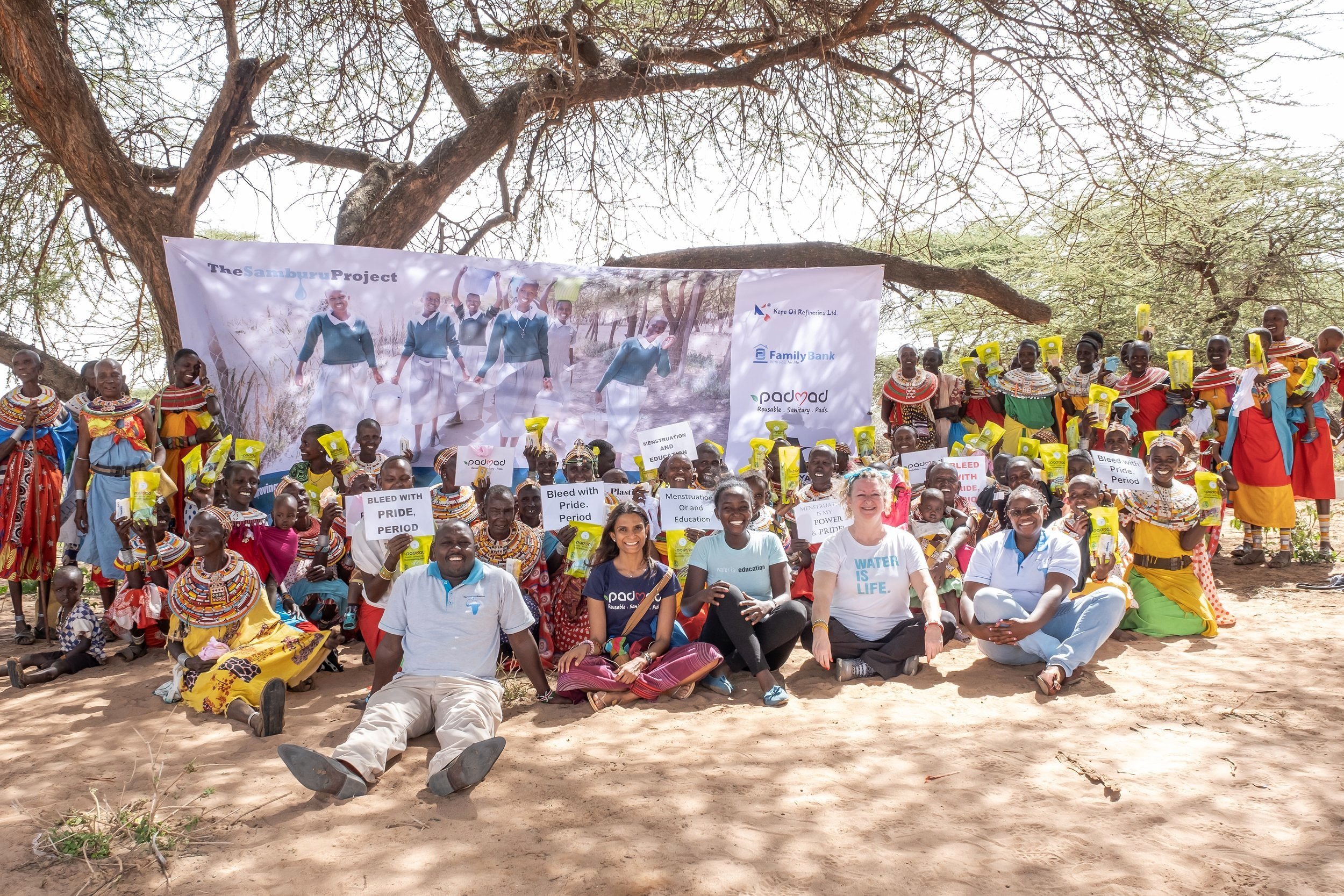
A PATH OUT OF POVERTY
With access to clean water, women in our partner communities no longer have to walk miles each day and can instead use that time to invest in themselves, their families, and their futures. With time, these inspiring women have created brick making businesses, started beading collaboratives, and turned smalls scale agricultural initiatives into a highly successful shops. With time, these women have become more informed about their human rights, taken control of their menstrual health, and learned about their power under the Kenyan law. These changes have resulted in an increased recognition of Samburu women’s skills and knowledge outside the scope of their traditional roles, and strengthened their voice both in their families and their communities.
SAMBURU SISTERS
With water readily available, women who have previously received little to no education now have the time to invest in themselves. With this in mind, in 2017 The Samburu Project launched our Samburu Sisters program to offer programs specifically geared towards women in our well communities. Our one day workshops are designed to further support women who are facing a rapidly changing world. We focus on issues that affect Samburu women and their families such as the ramifications of child marriage and teen pregnancy; misconceptions about and prevention of HIV/aids, the origin, myths, and harmful effects of female genital mutilation (fgm); menstrual, sexual, and reproductive health; the importance of education for pastoralists; equality and personal freedom for pastoralist women; increasing women’s leadership in reproductive rights , conflict prevention, and conflict resolution.
MEET THE WOMEN OF NAUPA NKURUKI
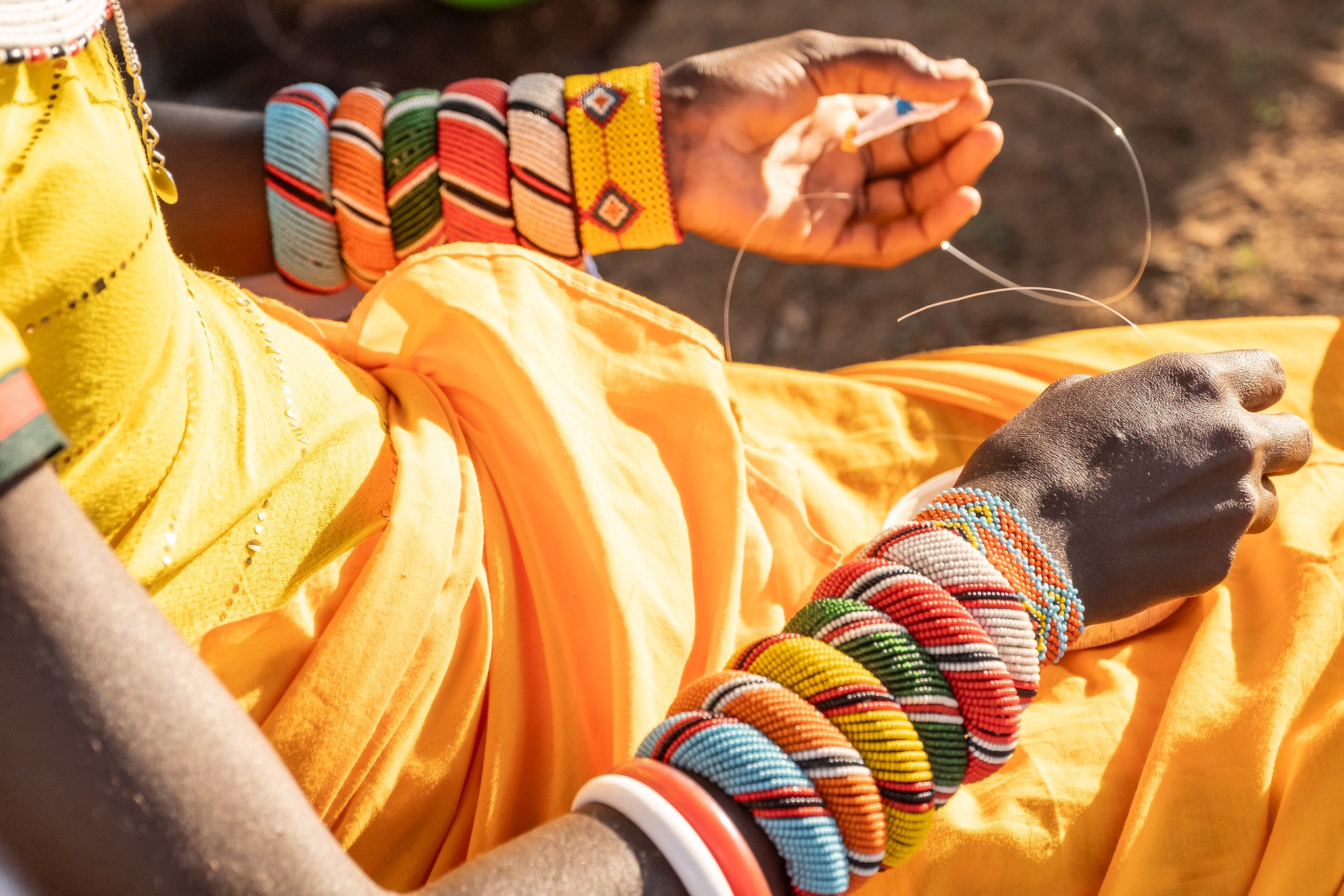
BEADWORK COLLABORATIVES
The predominant source of income for Samburu women is selling their signature bead work. With less time spent walking for water, women in our well communities have more time to make and sell their beaded jewelry. Women from the Lolgerdad well community took their beading business to the next level by pooling their money and supplies to form a beadwork collaborative. They sell their work at the Kalama Conservancy Airstrip in Archers Post Samburu. Each year, The Samburu Project restocks our Samburu Store with goods from their small shop. By selling their merchandise to our global community we are able to support women owned, small, local businesses in Samburu while raising funds to provide clean water to more communities in need.
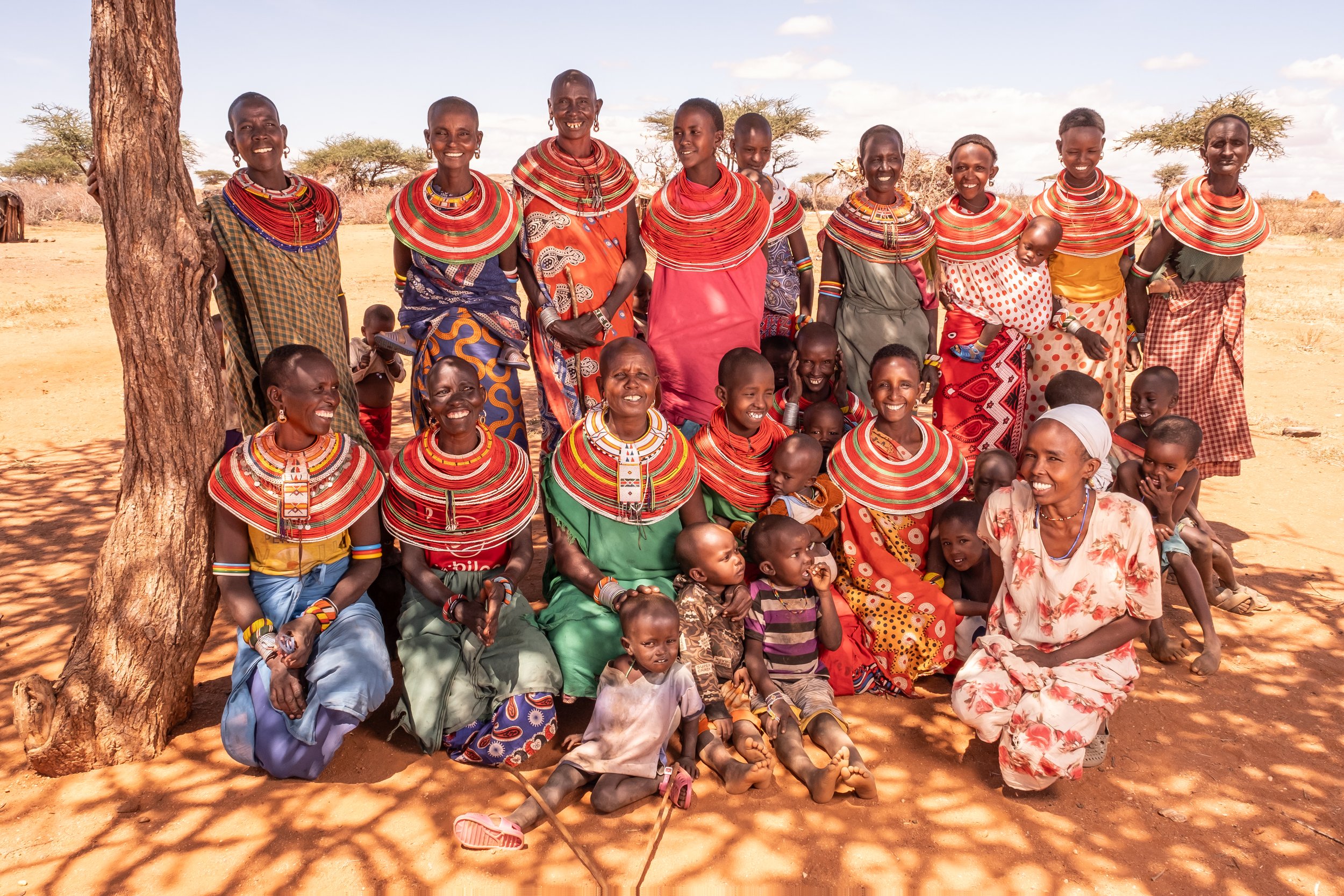
WOMEN TAKING THE WHEEL
Over the years, we have documented the stories of hundreds of women whose lives have been irreversibly changed by clean water. Women who have forged new futures as by selling donuts and handmade jewelry, opening roadside stores, molding bricks, and becoming leaders within their communities.
A WATER STORY: PART 3
The final installment of our three part water story tells the story of six Samburu women: Joyce Lakapa, Damaris Lemerketo, Mariah Lekadaa, Margaret Lekangu, Annah Dokoyah, and Jackline Lenatini. With access to clean water, these women have started their own businesses, joined women’s groups, and started paying for their children to go to school. Each one of their stories is inspirational, and each one started with water.
MARY LENYAKUMA
Mary first learned how to bead when she was 15 years old, from her mother. The tradition of beading is passed down from generation to generation of Samburu, and in the little free time she had, Mary embraced it whole-heartedly. Most days, however, left no time for beading. Mary woke up in the morning, gathered her things, and instead of walking to school, began the long search for water. This seemingly simple task took up the entirety of her day, leaving Mary little time for anything else. In 2012, The Samburu Project drilled a well in Mary’s town of Lolgerdad. Today Mary has 6 children and works 8-12 hours a day on her beading. She sells her jewelry at Kalama Airstrip.
JULIA LEJADE
Julia Lejade was born and raised in Wamba. Like most Samburu children, she grew up herding goats and taking care of the family's cattle. Her diet consisted of goat milk, and sometimes meat, as is traditional in Samburu. But the biggest challenge she faced on a daily basis was finding clean water. In 2007, The Samburu Project drilled a well in Julia’s community of Lower Sordo, and her life was forever changed.




